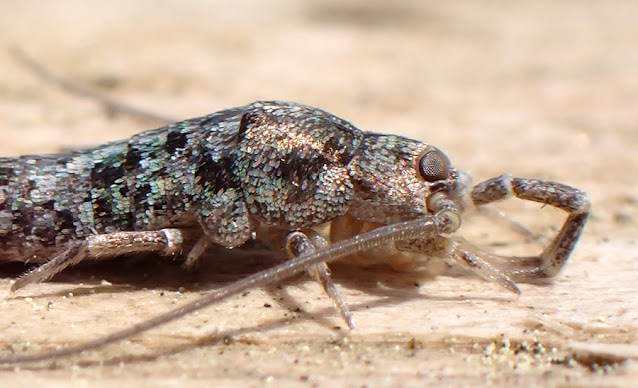Okay, here's another view of the mystery animal I showed last night. Lots of pretty colors in those scales!
Next, here's a zoomed out view, showing the head end of the animal:
I won't be surprised if this is still a mystery. These animals are small (~1.5 cm long), often hidden under driftwood logs or rocks, and they tend to be nocturnal, so less often observed during the day.
Now here's a view of the entire animal:
Meet Neomachilis halophila, a jumping bristletail! These are wingless insects. If they seem somewhat familiar, it might be because they look a bit like the "silverfish" found in our homes.
Note the hunched appearance and the very long "tail" (formally a terminal filament). Below look for the large brown compound eye and the long palps (curled downward in front of the eye). Jumping bristletails are scavengers feeding on things like algae, lichens, pollen, and plant detritus.
An interesting thing I learned about jumping bristletails — they're fairly long lived for an insect (I read estimates of 2-4 years) and they continue to molt even as adults (!).
Here's a bristletail that I found in the act of molting. You can see the older, grayer skeleton at the back end (upper left corner). The bristletail is emerging, looking all shiny and new. (Note that the outer tips of the antennae are yellowish at this time, but they'll eventually turn gray.)
Next time you peer under a piece of driftwood or a rock in the highest part of the intertidal zone, watch for jumping bristletails. And if you find one, lean in for a closer view —
you might see the beautiful colors reflected from their scales.





No comments:
Post a Comment